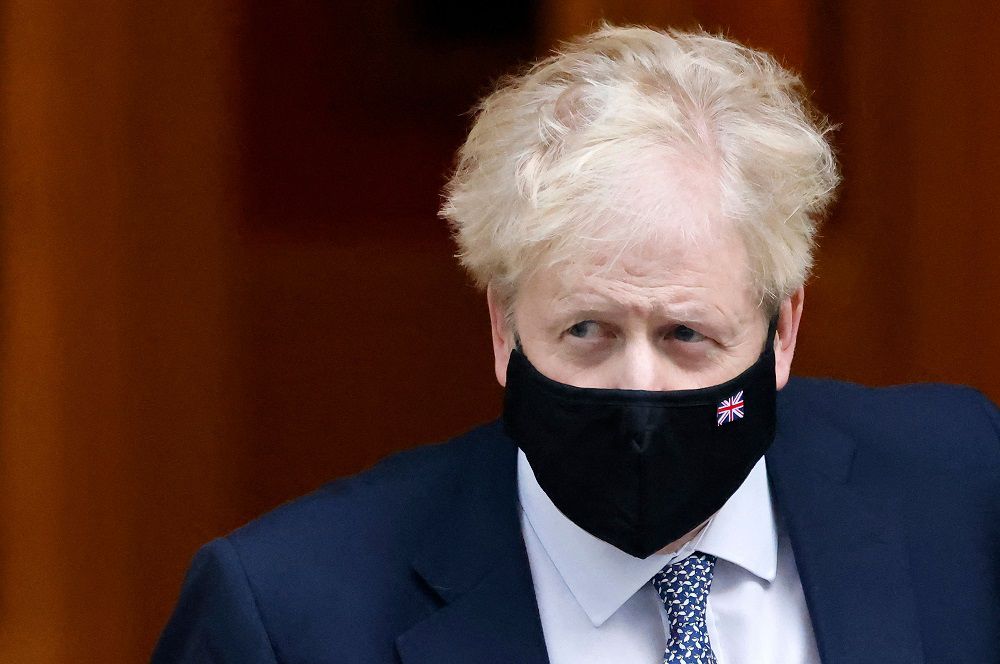Humbled Boris Johnson follows Europe with UK lockdown

AFP. London British Prime Minister Boris Johnson ended up changing his approach and, given the evidence that the coronavirus is out of control, announced a second lockdown in England on Saturday, October 31 the day the United Kingdom surpassed one million cases.
“We have to be humble before nature,” he said at a press conference called suddenly and delayed several times during a day of intense government meetings and leaks to the press that accelerated an announcement initially scheduled for Monday.
“Unless we act we could see the deaths in this country reach thousands a day,” he added with his main scientific and medical advisers, Patrick Vallance and Chris Whitty.
From Thursday until December 2, the 56 million inhabitants of England will only be able to leave home to buy food, go to the doctor, exercise or go to work if it is impossible for them to do it remotely, he explained.
All non-essential shops and entertainment venues will have to close, but unlike the first lockdown, kindergartens, schools and universities will remain open.
The measures will be debated and voted on by parliament on Wednesday.
Much criticized during the first wave for reacting late and subsequently for the serious consequences of the lockdown on the British economy, Johnson had resisted re-imposing measures at the national level.
He was harshly attacked by the Labour opposition when it emerged that he had rejected a short two or three-week lockdown advocated in mid-September by his scientific advisers.
But the United Kingdom, the country most punished in Europe with more than 46,500 deaths confirmed by covid-19, sees a second wave beating strongly.
On Saturday it exceeded one million positives: 1,011,660 cases of Covid-19 since the beginning of the year.
In this context, the prime minister followed the example of his two closest neighbors – France and Ireland – who already have their populations reconfigured.
Until Friday, his chancellor and number two in the executive, Dominic Raab, had insisted on maintaining a policy of local restrictions.
“We are going to do everything we can in a targeted way” in the areas of greatest contagion, he told the BBC. “We are not going to adopt a single approach for all” that “would be worse,” he insisted.
The north of the country, around cities such as Liverpool and Manchester, was already under heavy restrictions
But a study published on Thursday by Imperial College London and Ipsos Mori raised the alert about the rapid spread of the virus further south, which could quickly find itself at the same level.
Thus, Johnson was pushed by his advisers to stop the spike in infections now, in the hope of allowing families to reunite at Christmas.
These measures only affect England, because each of the four nations that make up the United Kingdom decides its health policies.
The more than three million Welsh were already reconfined by their regional government for 17 days.
As pressure mounted sideways for Johnson to do the same, opposition from conservatives also mounted: “Don’t do it Boris!” The conservative Daily Telegraph wrote on the front page Thursday.
The economic consequences are particularly feared, after the IMF announced this week a 10.4% fall in British GDP in 2020, worse than expected.
The repercussions will be “disastrous” in the hotel and restaurant industry, denounced on Twitter Kate Nicholls, general director of UK Hospitality, asking for greater financial support from the government.
In the opinion of Professor Stephen Griffin at the University of Leeds School of Medicine, “this déjà vu (…) was totally avoidable” if the epidemic had been kept under control through an effective system of tests and traces.
This time “I hope that the time gained from the second lockdown is used correctly and the UK can finally emulate countries where the epidemic is controlled” such as South Korea or Australia, he added.





